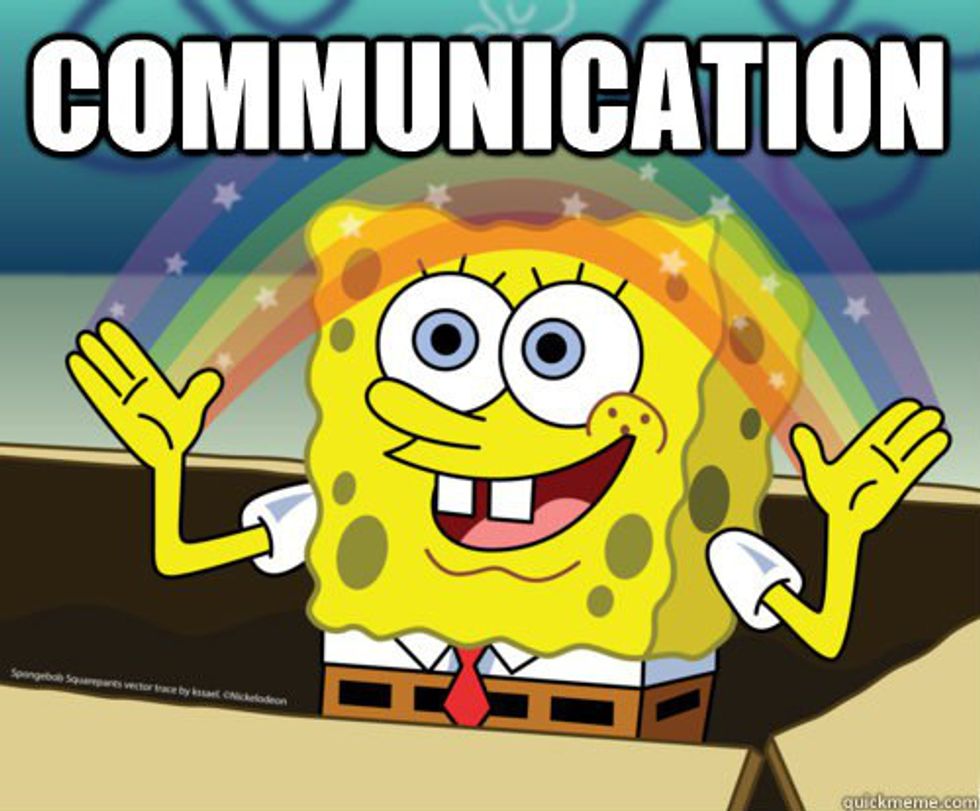The transition from high school to college can be difficult because the academic expectations tend to be very different. In high school, teachers remind you of due dates frequently and even give you checkpoints for big projects. In high school, teachers tell you exactly when to take notes and sometimes even tell you exactly what notes to take. In high school, teachers factor in lots of small participation and homework grades to cushion test grades. In college, these things are not always the case. Every professor is different, but in general, the bar is set much higher. To be academically successful in college, you can’t necessarily rely on the same strategies you used in high school; don’t expect to just show up and have everything fall into place. College requires a lot more organization, planning ahead, and effort than high school does. Here are 13 tips to make your freshman year (and every year after that) academically successful:
1. Use a planner.
I can’t stress this one enough. Invest in a nice planner that will work for you and use it every day, multiple times a day. Don’t just use it to write down due dates and events, use it to plan out your day and manage your time.
2. Read every syllabus.
Syllabi are crucial to success in college because they lay out the expectations, due dates, and big projects for each class. Read the syllabus for all of your classes and become familiar with them, because most professors will briefly discuss them on the first day and never refer to them again, yet expect you to understand all that is on it.3. Take good notes.
College professors won’t tell you when to take notes or how to take them like the teachers did in high school, so it’s really important that you initiate your own note taking. Write everything down that could be on a test or quiz. As you get to know the professor you’ll know more of what to expect on tests, so your notes will become tailored to the class, but until then, write down as much as you can.
4. Go to the library.
Getting homework done in your dorm room, or even in the comfort of your apartment, can seem impossible because there are so many distractions. Instead, find a quiet space on campus to work. The library is my workplace of choice and plays a huge role in my own academic success. So, I highly recommend scheduling some regular library time into your school week.
5. Plan your day so you can get homework done before dinner time.
There are so many fun things to do in college, but your main priority should be school. The best strategy for balancing your social life and academic life is to work hard during the school day so your nights are free. For example, if you have a big gap between your classes, go to the library to crank out some work during the break instead of going back to your dorm room to take a nap. Plan your days so you can get everything done before dinner time, that way you won’t have to worry about turning down fun, evening opportunities because of homework.
6. Find out what study strategies work for you early on.
You might find that the way you studied in high school doesn’t work as well in college because there’s a lot more content to learn in a shorter period of time. I personally like typing up all of my handwritten notes from class into an organized guide and then reading over it a few times the week before the test. If I have to remember a lot of dates and events in chronological order, a comprehensive timeline full of mnemonic devices is where it’s at. Find what works for you and take advantage of it!
7. Don't save studying and projects for the last minute.
Procrastination is not your friend in college. In high school it might have been easy to pull together a research paper the night before it was due and still get a decent grade, but in college that won’t fly. Time management is a major key to success in college, so it’s important that you get good at it.
8. Grade yourself.
Carefully look over the rubrics for projects and papers before, during, and after working on them. Imagine you’re the professor and determine whether or not you’ve met their expectations before turning in your work.
9. Do the readings.
Some professors assign regular reading to reinforce their teaching, but won’t actually test you on it. If you’re not really understanding the lectures, it’s important that you do those readings! However, you may be able to get good grades without this extra work, and that’s okay too.
Other professors will assign readings that go beyond the scope of what is discussed in class. They may not quiz you the next day on the readings (or maybe they will), but questions surrounding them may be on the test. Figure out what you need to be successful in each of your classes and understand that what works in one class might not work in another.
10. Proofread your work!
Don’t ever turn in something that you didn’t proofread a few times-- even if it’s just a simple forum post, or an easy homework assignment. You can save yourself some important points by eliminating typos and accidental mistakes. Professors can tell if you didn’t proofread, and taking the extra time to ensure that your work is quality will always play out in your favor.
11. Do your best.
If you truly put forth your best effort, you will do just fine. Professors appreciate the students who actually care about making their learning experiences meaningful, and your dedication can be the difference between an A and a B, or even an A and an A-. The only A-’s I received came from classes that I didn’t work very hard in. For example, I got an A- in sophomore level English because I thought that I wouldn’t really need to try in that class, since English is my forte and I’m even working towards becoming a language arts teacher. Although I still technically got an “A,” that minus is why I have a 3.9 GPA, which of course is still great, but it’s so close to a perfect 4.0 that it’s disappointing.
12. Don't be afraid to communicate with your professors.
If there’s something you don’t understand, ask your professor to clarify. If you’re too nervous to ask during class, email them afterwards or go to their office hours. This also goes for projects and papers. If you’re not sure if your work is meeting expectations, ask your professor! If you didn’t plan your time well and are scrambling at the last second to turn something in, don’t be afraid to ask for more time; just be honest and let your professors know as soon as problems arise. Your professors are people too and were students once (or maybe still are)! Chances are, they will work with you and even give you some good advice.
13. Utilize the resources available to you.
Any quality university or college should have a tutoring program, librarians who can help you with research and a writing center, among other academic resources; use them! I work in my university’s writing center, and I can tell you that we don’t bite. All of the writing center people I’ve met are super laid back, writing-nerds who would love to help you become a better writer, so don’t be scared to come visit us!



















 Energetic dance performance under the spotlight.
Energetic dance performance under the spotlight. Taylor Swift in a purple coat, captivating the crowd on stage.
Taylor Swift in a purple coat, captivating the crowd on stage. Taylor Swift shines on stage in a sparkling outfit and boots.
Taylor Swift shines on stage in a sparkling outfit and boots. Taylor Swift and Phoebe Bridgers sharing a joyful duet on stage.
Taylor Swift and Phoebe Bridgers sharing a joyful duet on stage.













